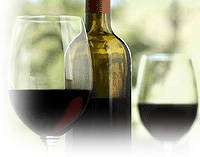Cabernet Franc

Style
Outside of France’s Loire Valley where it is bottled alone, Cabernet Franc’s most important role is that of blending grape; it softens the powerful Cabernet Sauvignon grape and adds aromatic complexity and finesse. On its own, it typically produces a medium-bodied elegant wine with subtle dried flower aromatics and earthy black fruit flavors.
Bordeaux, France
Almost always blended with Cabernet Sauvignon and/or Merlot, Cabernet Franc adds notes of cured tobacco, green pepper, and dried fruits and balances the more powerful varietals with its softer elegant structure.
Loire Valley, France
Cabernet Franc is the main red varietal of this region where it produces light to medium bodied wines with earthy black fruit flavors and hints of violets, tobacco, leather, and cinnamon spice. In contrast to Bordeaux, it is typically bottled on its own.
California and Washington
Used primarily as a blending grape to add depth and nuance to its better-known Bordeaux counterparts Cabernet Sauvignon and Merlot, the few examples of 100% Cabernet Franc tend to mimic the differences between American Cabernet Sauvignon and Bordeaux Cabernet Sauvignon. Fuller-flavored with richer fruit and less earthy aromatics, it also tends to be aged in newer oak barrels.
Copyright © 2026 TraceGains, Inc. All rights reserved.
Drink Responsibly. Drive Responsibly.
Learn more about TraceGains, the company.
The information presented here is for informational purposes only and was created by a team of US–registered dietitians and food experts. Consult your doctor, practitioner, and/or pharmacist for any health problem and before using any supplements, making dietary changes, or before making any changes in prescribed medications. Information expires December 2026.













